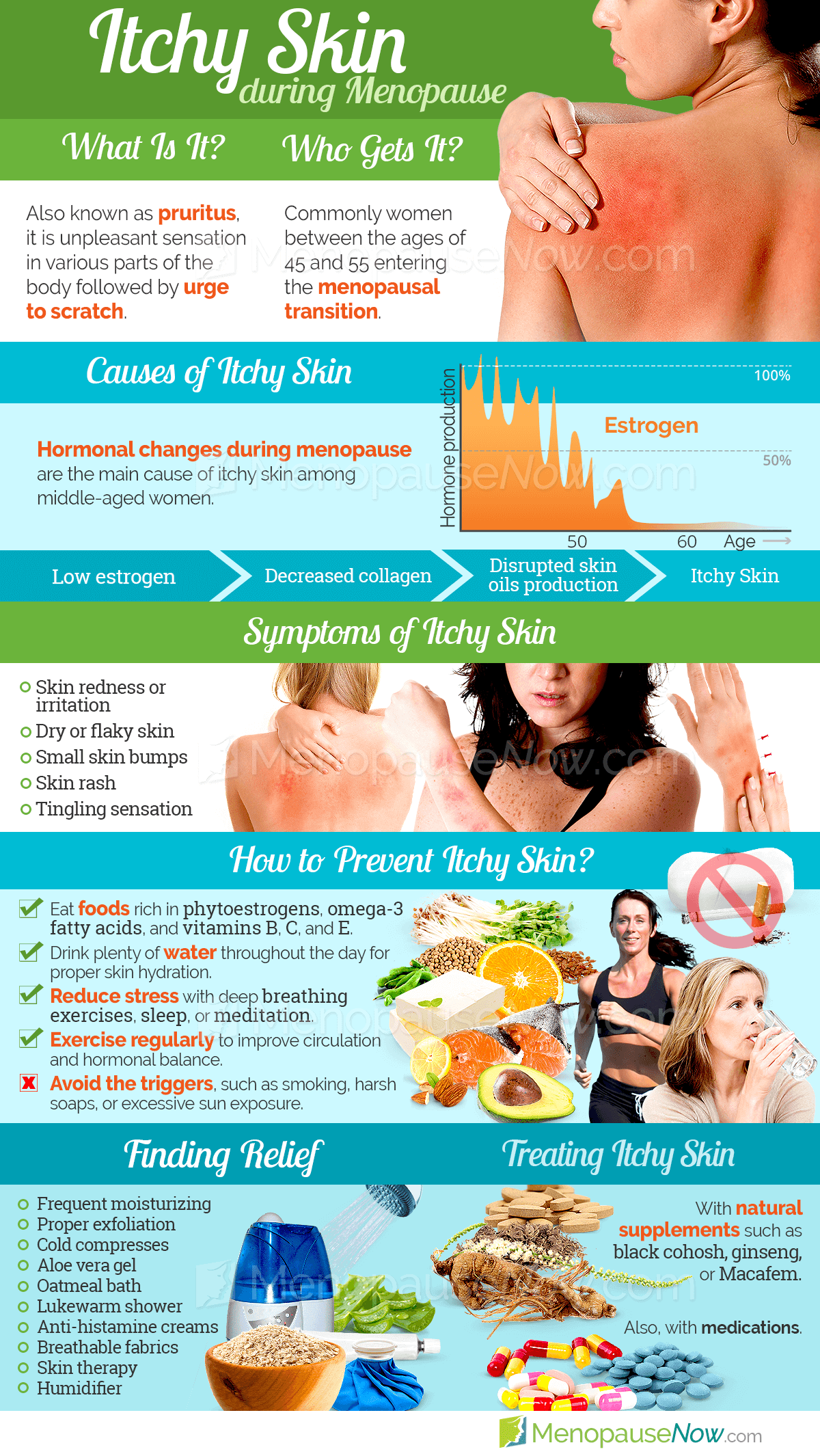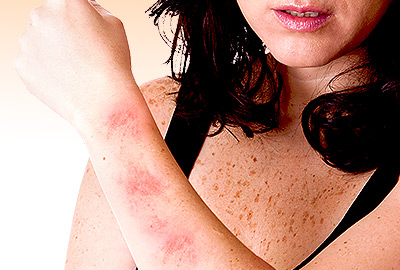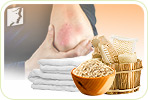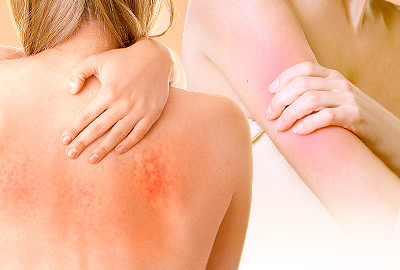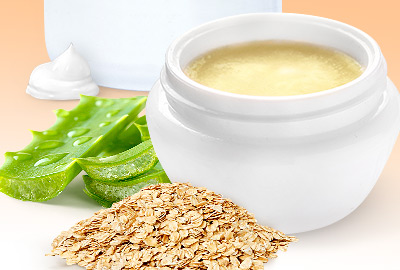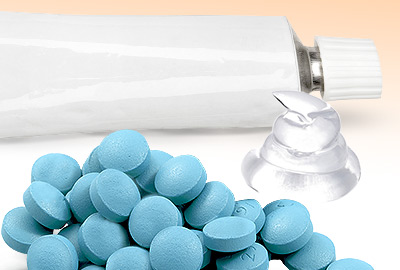While most women are familiar with the common symptoms of menopause, such as hot flashes and night sweats, many are unaware of menopause's effects on the skin. Experienced by many women during menopause, skin problems are closely linked to the hormone changes that occur during this transition.
Skin changes can begin as early as perimenopause, or the three- to ten-year period leading up to menopause. Other women may experience skin changes after menopause.
Fortunately, by better understanding the underlying causes of itchy skin during menopause, women can find the best treatment options available. Continue reading to learn more about itchy skin during menopause.
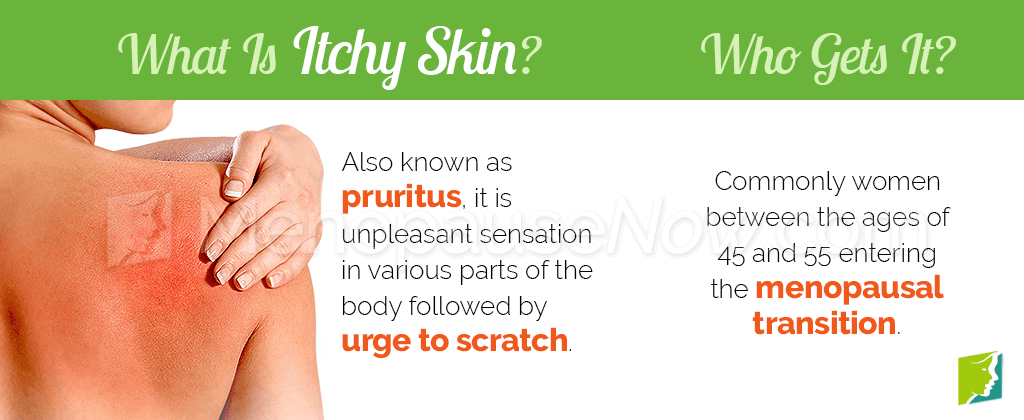
About Itchy Skin
Menopause can often trigger skin changes, leading to itchiness. Itchy skin, medically known as pruritus, is basically an itch or the sensation of an itch. This sensation can range from mild to severe; moderate to intense itchiness can become a major life disruption, especially if it causes significant discomfort and disrupts sleep.
Did you know?
During the menopause transition, many women also experience acne, thinning skin, wrinkles, and skin pigment changes.
In the body, signals sent to the brain from the nerves play a major role in the itchiness sensation. Although many causes of itchy skin are unknown, it is recognized that during the menopause transition, hormonal imbalance can strongly contribute to the feeling of itchiness.
Related to pruritus, paresthesia can also afflict women during the menopausal transition. Paresthesia is an abnormal skin condition defined as sensations of numbness, "pins and needles," tingling, and prickling of the skin.
A small percentage of menopausal women report the symptom of formication, a specific type of paresthesia characterized by creepy, crawling sensations on the skin. People with formication have the phantom sensation of ants or other insects crawling on their skin.
Read on to discover more about the symptoms of itchy skin during menopause.
Symptoms of Itchy Skin
Women who develop itchy skin during menopause can experience symptoms in different ways. Many women report that the elbows and the T-zone of the face are the first places where itchy skin develops. Other women report that certain areas of the skin are particularly dry and itchy, such as the limbs, chest, neck, or the back.
In addition to the chief symptom of itchiness, skin changes in menopause can also produce the following symptoms:
- Small bumps on the skin surface
- Red or irritated skin
- Skin rash
- Dry skin
- Abnormal sensations, such as numbness, tingling, prickling, and crawling
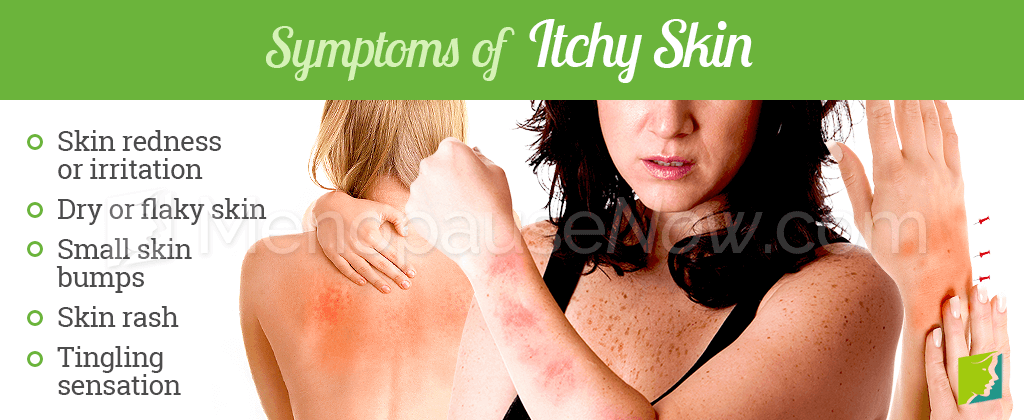
Now that the possible symptoms of itchy skin have been covered, the next step is to explore the connection between itchy skin and hormones during menopause. Read on to learn about the causes of itchy skin.
Causes of Itchy Skin
Hormonal causes
During menopause, the most common underlying cause of itchy skin is hormonal change. As the body prepares for the cessation of menstruation during perimenopause, levels of estrogen in the body also fluctuate and eventually begin a steady decline.
Estrogen plays an important role in maintaining healthy skin. For example, estrogen is responsible for stimulating the production of skin collagen, a fibrous protein that provides strength, resilience, and support to the skin and other tissues.
As estrogen production diminishes around the time of menopause, dry itchy skin becomes a very common symptom. The decline in skin thickness and collagen production appears to be most rapid in the years immediately preceding menopause.
Lowered estrogen levels also decrease the body's ability to retain moisture and slow down the body's production of natural skin oils, which also contributes to itchy skin.
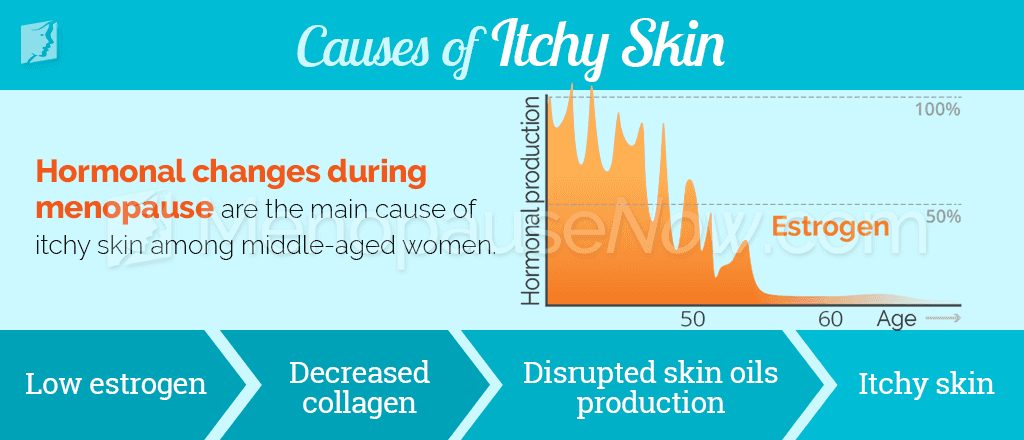
Other, rare causes of itchy skin
Medical Causes of Itchy Skin
- Hypothyroidism
- Fungal infection
- Diabetes
- Skin cancer
- Vitamin deficiencies
- Herpes
- Drug side effects
- Drug abuse or withdrawal
While hormonal changes are the most common cause of itchy skin during menopause, other medical conditions can be responsible for itchy skin. While these are rare causes, they are important to be aware of, particularly in cases where itchy skin is accompanied by other unexplained symptoms.
Women concerned about the causes of itchy skin and those who experience other worrisome symptoms should consult a qualified dermatologist or another medical professional. Fortunately, itchy skin in menopause can often be managed with self-care and natural treatments. Read on to learn more about the treatment of itchy skin.
Itchy Skin Treatments
Treating itchy skin during menopause often requires a number of self-care techniques. The general recommendation is that women combine lifestyle changes with alternative medicine, which are often safe and effective in providing itchy skin relief.
Self-Care for Itchy Skin
- Good diet. Increase intake of omega-3 fatty acids, which are found in foods such as salmon, walnuts, fortified eggs, sardines, flaxseed, and soy. Adequate B vitamin intake is also crucial to skin health.
- Increase water intake. This will help to hydrate the skin from the inside out.
- Avoid hot showers. Because hot water can be harsh and drying, it is better to take shorter showers using warm water.
- Moisturize after showers. Mineral oil and petroleum jelly are both excellent and inexpensive skin moisturizers.
- Use gentle, non-irritating soaps. The fragrances and other compounds in some soaps can irritate the skin.
- Use a quality, broad-spectrum sunscreen. This will protect the skin from damage.
- Avoid other triggers. Avoiding cigarettes, excessive sun exposure, stress, and poor sleep patterns can also help to manage itchy skin.
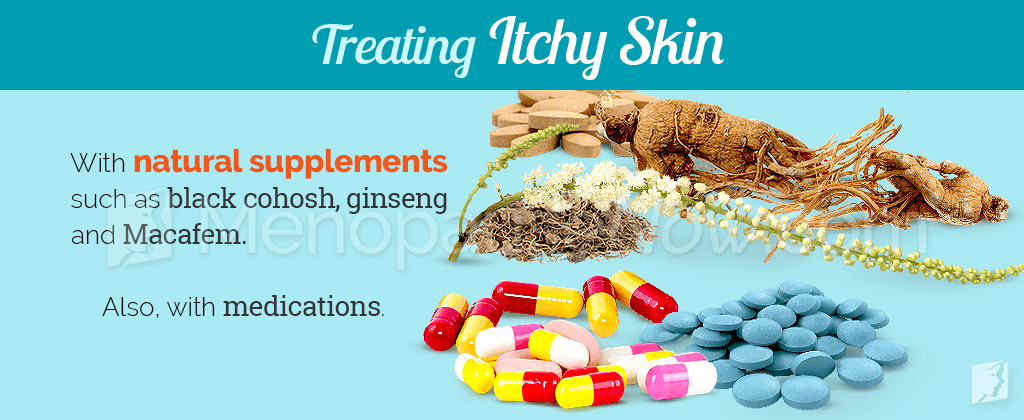
Alternative treatments for itchy skin
While these self-care measures can help a woman manage itchy skin during menopause, they alone are unable to get to the root cause of itchy skin during menopause: hormonal imbalance. Fortunately, natural supplements can address this primary problem of hormonal imbalance, helping a woman to treat itchy skin from the inside out. Alternative treatments involve little or no risk and are often simple to use.
Click on the following link to learn specific treatments for itchy skin, which begin with lifestyle changes, move onto alternative medicine, and finally, if those options do not seem work, medications. The most effective treatments typically combine lifestyle changes and alternative medicine.
Sources
- Hall, G. & Phillips, T.J. (2005). Estrogen and skin: the effects of estrogen, menopause, and hormone replacement therapy on the skin. 53(4), 555-568. Retrieved from http://www.ncbi.nlm.nih.gov/pubmed/16198774
- National Health Service UK. (2014). Itching. Retrieved May 13, 2016, from http://www.nhs.uk/Conditions/Itching/Pages/Causes.aspx
- Raine-Fenning, N.J. , Brincat, M.P. & Muscat-Baron, Y. (2003). Skin aging and menopause : implications for treatment. American Journal of Clinical Dermatology, 4(6), 371-378. Retrieved from http://www.ncbi.nlm.nih.gov/pubmed/12762829

